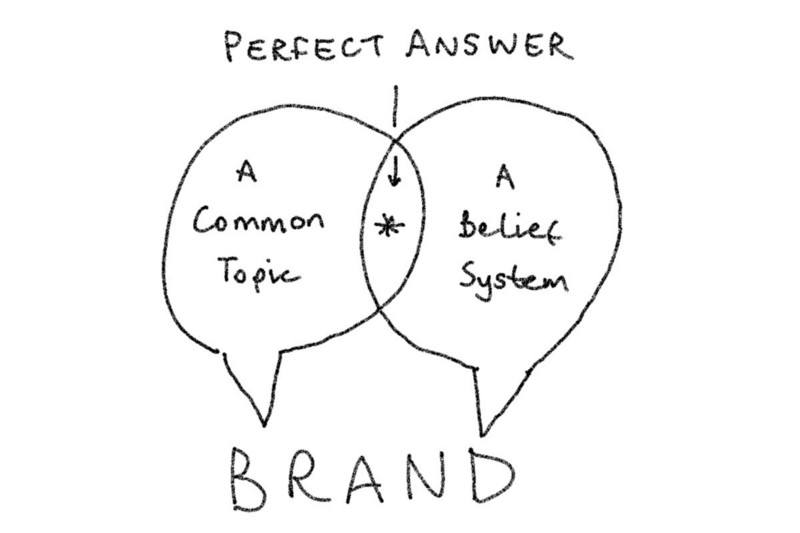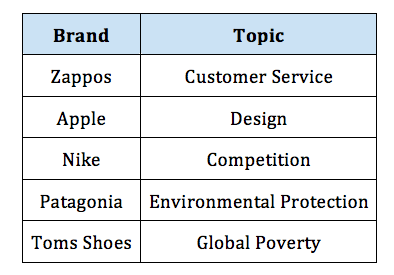How to Build a Strong Brand for Your Startup
Written by Dave Bailey

Does your startup have a strong brand? Learn how to create a powerful brand by clarifying your brand beliefs without hiring an expensive brand agency.
In my first startup, I dreamt of building a powerful brand that would earn its place next to iconic companies such as Apple, Google, and Facebook.
I decided to hire an agency to help us define our brand. We went through a number of classic exercises, like answering the question, ‘If your organisation was a car, what kind of car would it be?’ And at the end of the process, we were given a ‘brand book’ that provided guidelines on how we should use our new logo, and a list of words to include in our product messaging.
Learn new skills every week ->
The agency also suggested a list of potential campaigns that were supposed to ‘enhance our brand’. On the list were expensive projects such as hiring a celebrity to endorse our app, or holding a launch party that served Veuve Clicquot. When I asked how we’d measure the return on these activities, I was told, ‘You probably won’t get any new customers, but this is an investment in your brand.’
The brand book sat on the shelf. We focused our energies on reaching product-market fit and investing in performance marketing. The campaign suggestions were parked for when we had some spare cash. That day never came.
So, how important is it for early-stage startups to define their brand? And what is a brand in the first place?
A More Useful Definition of Brand
If you equate branding with a pretty logo and some expensive publicity stunts, you’re leaving out the most important part.
In Sasha Strauss’s talk at Google, ‘Branding is the New Normal’, he puts forward a simple recipe for building a powerful, long-term, market-impacting brand. What I love most about his recipe is how simple it is:
‘A brand is a combination of a topic that your audience is curious about, and a belief system that intersects with it.’

This simplifies the challenge of defining your brand:
- Identify an important topic or activity that your customers care deeply about.
- Create a belief system around this topic.
Taking the time to clarify these two questions has a lot of benefits. It can help you align your team by providing a framework for decision-making, especially in product and customer experience. It can help you focus your product messaging on what really counts. And it can help you create a deep emotional connection with your customers and employees.
‘The goal is not just to sell to people who need what you have; the goal is to sell to people who believe what you believe. The goal is not just to hire people who need a job; it’s to hire people who believe what you believe.’ Simon Sinek at Ted
How do you apply this at your startup?
1) Define Your Brand’s Topic
The first step is to define the topic your customers are interested in. Your brand topic should be narrow enough for people to have clear opinions, but broad enough that it’s not just about your product.
Consider this list of brands and their topics:

Notice how the brand topic isn’t necessarily the same as the industry. For example, Zappos famously built a brand around customer service — they just happen to sell shoes.
2) Articulate Your Belief System
When it comes to creating philosophies, few people were as good as the ancient Greeks. My favourite philosopher (yes, I have a favourite) was Aristotle. He argued that the role of the state is not to allow people to live, but to allow people to live well. He spent a lot of time thinking about what it means to live a good life.
If Aristotle were a modern entrepreneur, he’d probably build a killer brand. His topic would be ‘living the good life’ and his belief system would carry over into an awesome set of products designed to help customers live better lives.
This provides a useful question for entrepreneurs to reflect upon:
What is the right way to think about [___topic]?
To help tease out your beliefs, it’s often helpful to look at the extremes, both good and bad. You might consider a competitor, and reflect on why their product fails to meet a certain virtue that you believe is important. You might also consider what an unachievable ‘perfect’ solution might look like — and try to uncover ideals that you can strive for in your product.
For example, Zappos believe that the right way to do customer service is to deliver ‘wow’ through service. If you believe this too, you probably want to buy your shoes from Zappos.
When prompted for their beliefs, entrepreneurs often focus on their customer’s problem. But your customer’s problem shouldn’t be something you believe — it should be something real. You should focus on what you believe is the right way to think about your topic . . . not what the problems are.
Learn new skills every week ->
The Link Between Brand and Product
Traditional marketing encourages us to sell benefits, not features. Brand marketing goes one level deeper and connects with people’s beliefs. However, there are often deep links between benefits and beliefs:
We believe that [___brand belief]. That’s why we built a way to [___feature] so that [___benefit].
When you speak to people on the level of their beliefs, you have an opportunity to connect emotionally — to customers, employees, and even investors.
The key question for you is: what do you believe?
Continue reading about brand beliefs:
- Working on your mission statement? Learn how to establish a purpose-driven company.
- Building a new brand from scratch? Here's how to grow your business with great marketing strategies.
- Struggling to motivate your employees? Use these team mantras to inspire your employees.
Originally published Dec 17, 2019, last updated Apr 9, 2024
How do top founders actually scale?
I’ve coached CEOs for 10,000+ hours—here’s what works.
Join 17,000+ founders learning how to scale with clarity.
Unsubscribe any time.




